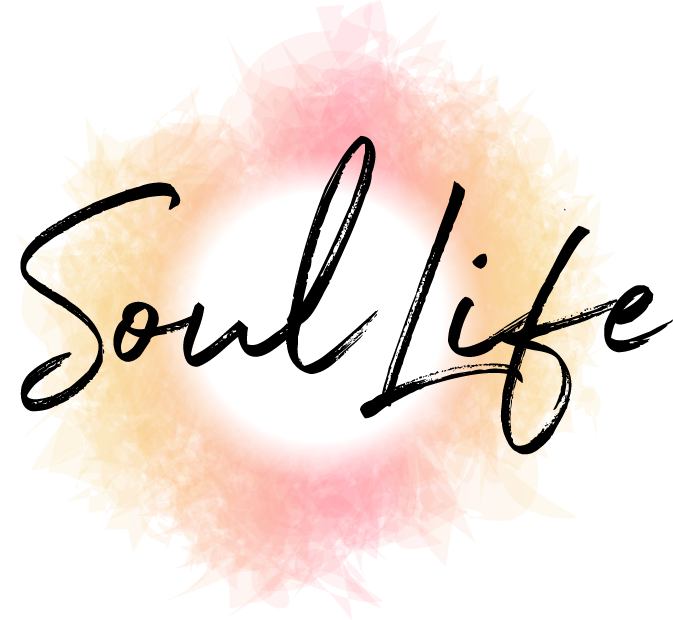Today is a fantastic time to be alive. The world is in a better space than it has ever been. A detailed study of history or a talk with any historian can prove these statements to be true. I know many pessimists may disagree with me already, but I hope they read till the end and then make a decision. As a civilization, we are progressing to a brighter future, with technology making our lives way too easy and facilitating any information to be available at our fingertips. While saying these things, I am not trying to deny the existence of darker facts like two ongoing wars, the climate crisis, heinous acts of crime or polarization of society everywhere. Every century has brought along its own share of difficulties and darker sides. But none have seen better opportunities than today’s times.
In saying all of this, I wish to emphasize on one key aspect. When the world is bringing along such opportunities, the onus of responsibility lies with the common person to make the most of them. Yet, what we see all around is not very encouraging. Here is where I guess the pessimists will feel vindicated.  The flipside of our times comes in the form of challenges in one’s mental health. We are a generation over exposed to information, bringing with it a landslide of choices. We live with our devices, while also having human beings around, though we like to pretend that the reverse is true. Such are the times we live in that even travel has become a stressful event. Travelers seem to be moving with an additional baggage of milestones, which were previously non-existent. Did they cover the most viral places and events at their destination? Are they updated on the latest trends on social media? Do they have the requisite likes and comments on their pictures that validate their vacation? Travel is no longer about resting or relaxing, it is more about competing with invisible forces on one’s mobile. Food is a topic of constant debate. What is deemed as healthy by some will be called out as unhealthy or unrealistic by some others. In all of this, with the bombardment of choices, people are struggling to stay balanced and at peace.
The flipside of our times comes in the form of challenges in one’s mental health. We are a generation over exposed to information, bringing with it a landslide of choices. We live with our devices, while also having human beings around, though we like to pretend that the reverse is true. Such are the times we live in that even travel has become a stressful event. Travelers seem to be moving with an additional baggage of milestones, which were previously non-existent. Did they cover the most viral places and events at their destination? Are they updated on the latest trends on social media? Do they have the requisite likes and comments on their pictures that validate their vacation? Travel is no longer about resting or relaxing, it is more about competing with invisible forces on one’s mobile. Food is a topic of constant debate. What is deemed as healthy by some will be called out as unhealthy or unrealistic by some others. In all of this, with the bombardment of choices, people are struggling to stay balanced and at peace.
Interestingly, what differentiates us from the previous generations is also another side of the same coin. The same technology and the same devices also bring with them a magic of condensing the entire world into our palm. As evidenced by my Google analytics, a stranger sitting at Bali reads my blog, while another anonymous user from Europe views my videos. This brings along an opportunity to access information across the globe. Let us now come to the key purpose of this blog – to speak about the importance of human well-being. What does well-being have to do with all of this, you may ask. As the Greek philosopher Thales put it, ‘Anima Sana In Corpore Sano’ (Latin) translates to ‘A sound mind in a sound body’. The generations prior to this had to face many challenges to physical health and fitness. Today’s generation has equally difficult challenges in dealing with aspects of the human mind. In today’s world of likes and short video reels, the bigger challenge is one of the mind. Hence, any discussion on well-being will be effective only when we address both the body as well as the mind.
Let us now explore well-being through three very basic aspects of human life – Energy, Breath and Sound. These are the lenses we use to look a well-being in a unique yet extremely relevant manner through our workshop ‘Introduction to Meditation’. Let’s begin with Energy. What really is the human body made up of? The answer I receive to this question often elaborates on aspects like organs, tissues, muscles, bones, etc. When probed further, the answer narrows down to cells. Yes, every part is made up of cells. What are the cells made up of? The answer to this lies in ‘energy’. Our Guru says, ‘The human body is nothing but a crystallization of energy.’ Everything that we are and everything that we see or sense in any form is energy. The source of this energy is the Universe which is a mega bundle of energy by itself. Everything takes form and shape from this formless energy and comes into existence. Just as we are made up of energy, and are surrounded by it, we work constantly through this energy only. The unfortunate part is that most of it happens outside our conscious awareness, and we respond to it unconsciously as well. While some aspects of our well-being, like food and nutrition, have been taught to us since childhood, we often do not understand even those entirely. Let me elaborate.  As children, we are taught to care for our physical bodies through consumption of food. For infants, a parent or caregiver ensures that they receive age-appropriate nutrition. As the child grows, he is given more choice in the food he can consume, all the while monitored by the parent or care giver. The child is initially fed by the elders too. Over the course of time, the child learns to make her own choices and also eat by herself. However, in spite of practicing this since birth, adults struggle regularly with their nutritional choices. They either eat too little or too much, don’t eat at the right intervals, make unhealthy food choices, replace emotions with food, etc. In short, in spite of having practiced it their entire lives, few people can claim mastery over their food intake and nutrition.
As children, we are taught to care for our physical bodies through consumption of food. For infants, a parent or caregiver ensures that they receive age-appropriate nutrition. As the child grows, he is given more choice in the food he can consume, all the while monitored by the parent or care giver. The child is initially fed by the elders too. Over the course of time, the child learns to make her own choices and also eat by herself. However, in spite of practicing this since birth, adults struggle regularly with their nutritional choices. They either eat too little or too much, don’t eat at the right intervals, make unhealthy food choices, replace emotions with food, etc. In short, in spite of having practiced it their entire lives, few people can claim mastery over their food intake and nutrition.
In contrast, the science of energy management is predominantly an alien concept to most people. Even though the availability of such information is at its highest now than ever before, most people are not as well-informed regarding these as they should be. Some people are lucky to have come across this concept in their early adult years. For many, though, it surfaces much later. In order to understand how we function as energy beings, we need to take the first step of collecting information regarding the same. If we are energy bodies, where do we receive this energy from? How do we process it within our system? What happens when we have the wrong kind of energy within us? Through our course, we attempt to answer all such questions related to human well-being in depth.
We have often heard elders say that the company one keeps is very important. The people we surround ourselves with have the capacity to influence our energies directly, through the interaction of our energy bodies, and also indirectly. Their indirect influence is through our thought processes. People that we live with have the capacity to highly influence our thought patterns, even without their or our own awareness of it. Thoughts too are a very powerful and potent form of energy that influence our well-being. The human mind has an immense capacity to generate thoughts. This is something which anybody who has ever tried to meditate can vouch for. Yet, it is in silence that the deepest of energy recharges and connections can be made. Just as it is the calm sea that supports transportation of goods and people and not the turbulent one, it is the silent mind that allows energies to flow and shifts to happen.
Now let us shift to the second aspect of well-being. Breath is the essence of life. A person is considered alive when he is breathing. Similarly, the quality of breath decides the quality of one’s life too. Yet, how often do we pause to take a note of our breath? If I ask you to stop reading for a bit and pay attention to your breath, you will notice certain aspects of it now. If you were to repeat the same immediately after a short sprint, you will notice some differences. If you were to do it after an angry altercation with someone, you will notice further more differences. This simple exercise can seal the fact that our breath responds to everything we think and everything we do. What, then, could happen if we could learn to modify our breath at key points in time? How would that shift our experience of life itself? This requires consistent effort and practice, and can yield sustainable results that shift your energies.
Similarly, the quality of breath decides the quality of one’s life too. Yet, how often do we pause to take a note of our breath? If I ask you to stop reading for a bit and pay attention to your breath, you will notice certain aspects of it now. If you were to repeat the same immediately after a short sprint, you will notice some differences. If you were to do it after an angry altercation with someone, you will notice further more differences. This simple exercise can seal the fact that our breath responds to everything we think and everything we do. What, then, could happen if we could learn to modify our breath at key points in time? How would that shift our experience of life itself? This requires consistent effort and practice, and can yield sustainable results that shift your energies.
The third, least discussed and underestimated aspect of our well-being is the power of ‘Sound’. One of the well-known theories of the start of this Universe is called ‘The big bang theory’. Its naming is obviously not a co-incidence. Sound (the bang) plays a crucial role in existence and thereby our lives too. The ancient sages discovered this many centuries ago. They found that not just words (language) with meaning attached to it, but even certain syllables can have a profound impact on our well-being and growth. They deciphered the codes and presented it to mankind in the form of mantras (divine chants). The strength embedded in these sounds were meant to make life easier on the human plane, with mantras existing for every aspect and wish that mankind could envisage. While many have practiced this as part of Sanatana Dharma, very few people have explored its relevance to well-being. Today, irrespective of which religion you belong to, this is a powerful tool to explore and utilize to benefit your well-being.
As I speak of well-being elaborately in the above passages, there is one aspect I wish to bring to the reader’s awareness now. Whether you consider yourself a spiritual person or not, one thing is for sure. Your wish is to live a life of peace and experience the joys of growth. For a spiritual person, this may be through the fulfillment of their spiritual goals, seeking progress in their spiritual milestones, whatever they may be. For a non-spiritual person, this may involve the pursuit of materialistic ambitions and life goals. However, before their paths diverge, everyone needs to walk to the common goalpost of well-being. In order that a spiritual person experience His higher divine self, he needs to be at ease physically and mentally. The same is true for a person who wishes to dedicate his life energies to a non-spiritual cause or goal. Hence, irrespective of where you see yourself and your goals, this common path is one of relevance to every individual soul.
For a spiritual person, this may be through the fulfillment of their spiritual goals, seeking progress in their spiritual milestones, whatever they may be. For a non-spiritual person, this may involve the pursuit of materialistic ambitions and life goals. However, before their paths diverge, everyone needs to walk to the common goalpost of well-being. In order that a spiritual person experience His higher divine self, he needs to be at ease physically and mentally. The same is true for a person who wishes to dedicate his life energies to a non-spiritual cause or goal. Hence, irrespective of where you see yourself and your goals, this common path is one of relevance to every individual soul.


The super soul within us is to be discovered and served first,then automatically every aspect of this material body,subtle body and spiritual body will align to lead a peaceful life..